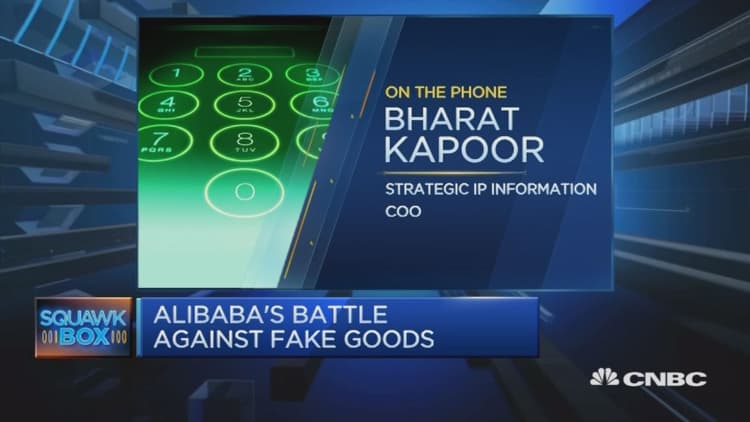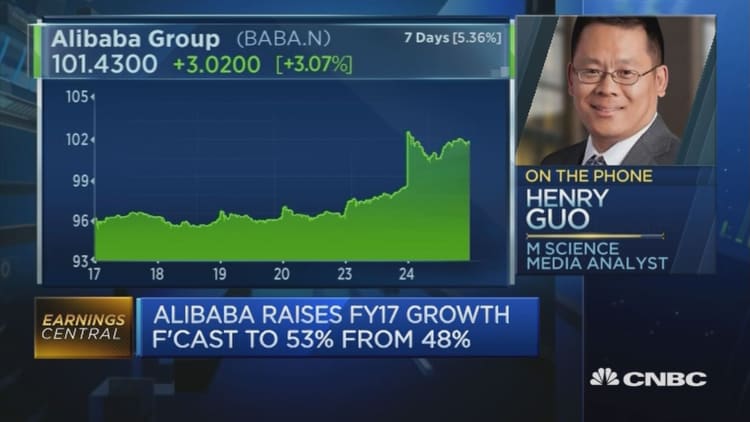


As Alibaba takes the leap away from being a pure play e-commerce company into the cloud computing space, the road ahead might not be smooth sailing, according to experts.
For starters, the company is likely to meet with fierce competition in its attempt to shift away from being a pure play e-commerce company to focus on cloud computing. The cloud computing space in China has seen intensified competition in recent years as internet companies like Baidu and Tencent stake their claims in the data management space.
The telecommunication and networking company Huawei is also a competitive player in the cloud computing space in China, Junheng Li, president of JL Warren Capital, told CNBC.
"(Cloud computing) is a relatively new sector in China so there are many players trying to get in early to grab market share so inevitably, you see competition heat up pretty quickly," Li said, "That's why the cloud business, although it's only been in operation for a couple of years, you already see pricing pressure."
For Li, it remains to be seen if Alibaba will be as successful in the cloud as it has been in e-commerce. "I think people are happy that Chinese consumers are still spending in the e-commerce sector but they are waiting to see how (Alibaba's) other businesses, such as cloud computing, will play out. I think it's too early to say," Li said.
Another problem that weighs on Alibaba has been its problem with the counterfeit goods sold on its e-commerce platforms. In December last year, the U.S. Trade Representative office placed the company's C2C platform, Taobao, on a blacklist that reflected the names of companies that sold counterfeit goods.
This has not negatively affected consumer perceptions of shopping on Alibaba's e-commerce platforms, which saw gross merchandise volumes for its Singles' Day shopping event increase by higher than 32 percent on year to reach $17.8 billion. However, this dents the company's reputation among brand merchants and could potentially be a stumbling block for overseas expansion.
In its Jan. 25, 2017 report on Alibaba's earnings from the last quarter, Maybank Kim Eng Securities noted that counterfeit products were a downside risk for the company's shares as they could lose global brand share to e-commerce rival JD.com. In addition, the report also stated that "unexpected regulatory changes" over the issue of fake goods and intellectual property could impact the company negatively.
In addition, while Alibaba has taken action against fake goods that are being sold on its websites, some analysts say that this is too little too late. "The numbers speak for themselves. They've removed so many millions of listings (of counterfeit products) but the problem is still rampant," said Bharat Kapoor, COO at Strategic IP Information.
"Very little has been done on the ground," Kapoor said. To remedy the situation, he said that companies should be given more power when it comes to removing counterfeit products under their brand name on Alibaba marketplaces.
"The complaint filing process on Alibaba is so complex. There are some 30 sub codes that you have to use to file a complaint for each listing on Taobao and you have to justify that a particular product is fake. This is not something that is required for any other marketplace," Kapoor said.

